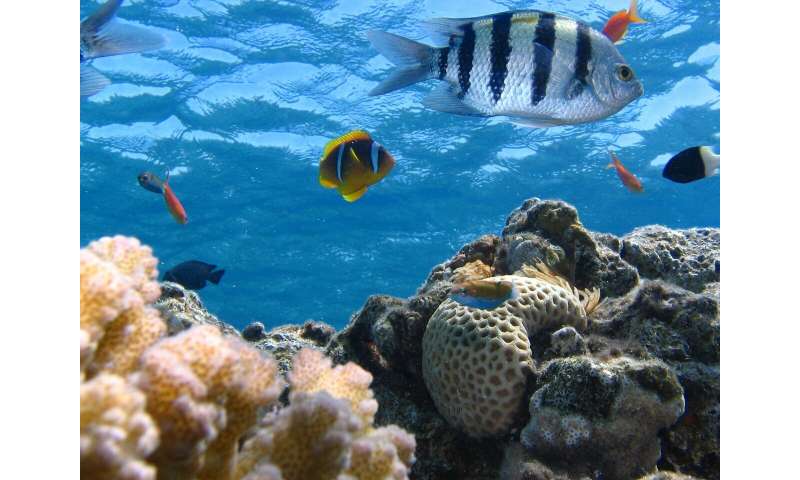
Excessive nutrients, such as nitrogen and phosphorus, have devastating effects on coastal marine ecosystems by causing algal blooms that deplete oxygen in the water, killing marine life. Such nutrients can enter the sea in wastewater or run-off from agricultural land. However, a new review in open-access journal Frontiers in Marine Science highlights that problems caused by other human activities, such as climate change, can exacerbate these detrimental effects on marine ecosystems. The review suggests that an integrated approach considering land use, ecology and input from scientists, politicians and the public is required to defeat this terrible synergy.
By enriching the land, humans are impoverishing the sea. Nutrients, in the form of synthetic fertilizers added to agricultural land, can leach into rivers and ultimately the sea. While not inherently toxic, these nutrients cause an explosion of plant and algal life that disturbs delicate marine ecosystems. This process is called cultural eutrophication, and it can have serious consequences for marine life.
"The threats posed by eutrophication include reduced water clarity, oxygen depletion, and toxic algal events that result in critical habitat losses such as coral reefs, seagrass meadows, and mangrove forests," said Professor Thomas Malone of the University of Maryland Center for Environmental Science. "Other serious consequences include mass mortalities of marine animals, loss of biodiversity, and threats to human health."
This new review by Malone and Professor Alice Newton of the University of Algarve details so-called "dead zones" within the ocean, where eutrophication has caused significant oxygen depletion resulting in mass mortalities of marine animals. Conservative estimates indicate that there are now over 700 such areas. These harmful effects can be seen amongst the natural treasures of the ocean, such as the Great Barrier Reef, where eutrophication is partly responsible for a 70% reduction in hard corals over the past century.
So, where do these nutrients come from? As well as agricultural fertilizers, other sources include human sewage and farm animal manure. Burning fossil fuels, such as in car engines, also results in an abundance of nitrogen-containing compounds that can enter the sea.
While eutrophication is bad in isolation, the review reveals that other human activities, such as overfishing and burning fossil fuels can compound its effects even further. For instance, climate change increases river runoff and, as a consequence, the level of nutrient pollution. Overfishing affects animals that typically eat algae, allowing algal blooms to grow larger.
Ocean acidification is also an issue. The ocean absorbs a significant quantity of the CO 2 released from combustion, increasing seawater acidity. At the same time, low oxygen environments exacerbate ocean acidification by releasing addition CO 2 into the ocean. This can have serious adverse effects on corals, shellfish and plankton.
Given that the problem is multifaceted, Malone suggests that the solution is too. An important aspect of this involves better monitoring of nutrient pollution on a global scale as well as reducing nutrient inputs into coastal marine ecosystems. Steps to reduce nutrient input must be guided by a variety of people, including scientists, policy makers, and the public, to give the strategies the best chance of success.
The review suggests a wide variety of practical steps that land-owners could take to reduce nutrient pollution, including restoring habitats, such as mangroves and marshes, that can remove nutrients from water before they reach the sea. Ecosystem management plans that consider both watershed areas on land and the seawater they drain into are also necessary to tackle the problem.
Donald Boesch, Professor of marine science at the University of Maryland and former President of the University of Maryland Center for Environmental Science, who was not involved in the study, said: "This valuable review shows the commonalities in the timing, causes and consequences of nutrient pollution of coastal waters in many otherwise very different regions of the world. Our progress in reversing this important cause of ecosystem degradation will be limited unless we can reduce agricultural pollution through more effective regulations and incentives."
More information: Thomas C. Malone et al, The Globalization of Cultural Eutrophication in the Coastal Ocean: Causes and Consequences, Frontiers in Marine Science (2020). DOI: 10.3389/fmars.2020.00670